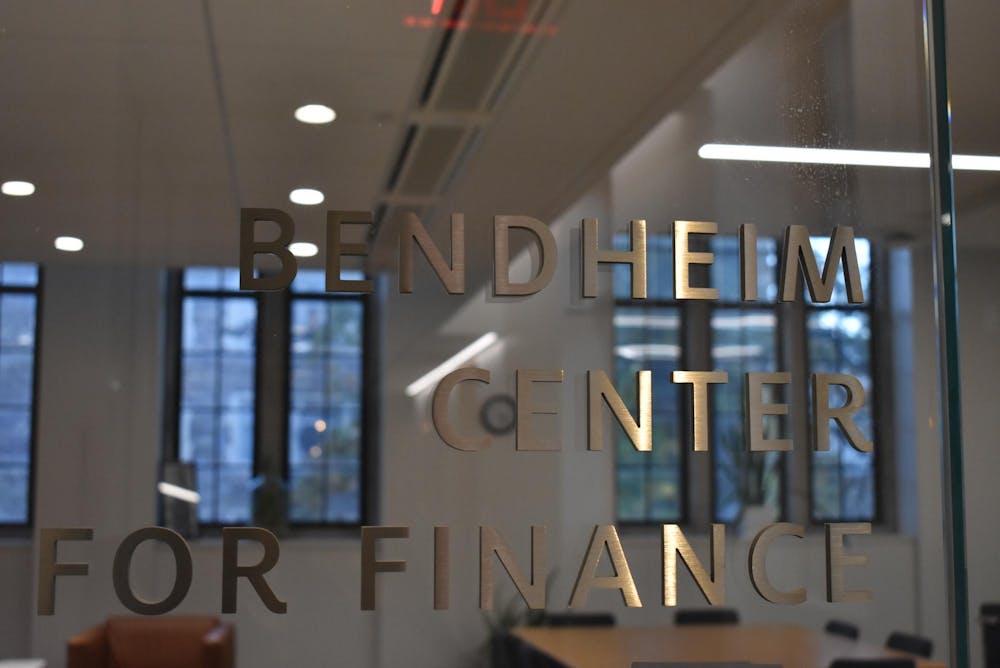The following is a guest contribution and reflects the author’s views alone. For information on how to submit a piece to the Opinion section, click here.
We often consider Princeton, like many other elite universities, to be the golden ticket for a life of success. But outside of the Orange Bubble, there is a dire warning for us all: managing our personal finances has become much more challenging, even for those with high incomes. In response to the retirement crisis, the University must emphasize the importance of financial literacy to its students.
The retirement crisis originates from our current financial struggles. As of November 2023, 62 percent of U.S. consumers are living paycheck-to-paycheck. Household credit card debt is at a record high of $1.08 trillion. Many Americans do not have a sufficient emergency fund, and 22 percent have none at all.
Consequently, many Americans are also not on track for their retirement. 47 percent of Americans are at risk of being unprepared for retirement, and 28 percent of Americans have no retirement savings at all. The Social Security program is projected to deplete its reserves in 2034, which will reduce retiree benefits to 77 percent of the original amount. While the cost of retirement is persistently increasing, our savings are not keeping up.
Unfortunately, the financial situation of younger Americans is even worse. A study from the National Bureau of Economic Research found that millennials “had less median and mean wealth in 2016 than any similarly aged cohort between 1989 and 2007.” In fact, 70 percent of millennials are living paycheck-to-paycheck, which is more than any other generation according to the study. The verdict is clear — America is in a retirement crisis, and it’s not getting any better for younger generations.
So then, how does this concern a student at Princeton? Fundamentally, aren’t elite universities supposed to set students on the path towards financial success?
After all, it is not entirely baseless to assume that Princeton graduates will be unaffected by the retirement crisis. By age 34, the median annual income for Princeton graduates is $90,700. Even outside Princeton, many graduates of elite universities will earn well above the median national household income of $74,580. Princeton recently expanded its 100 percent grant-based financial aid to all students with a family income up to $100,000, and now 83 percent of “recent seniors” graduating debt-free.
However, even a six-figure income is no longer synonymous with financial security. As of November 2023, 45 percent of American consumers earning at least $100,000 annually were living paycheck-to-paycheck. Why then, are there so many people — those we typically consider “financially successful” — struggling with their finances? Simply put, we don’t keep enough of what we earn. But we already know the solution to that problem. Most of us — if not all of us — already are aware that we should form good financial habits. Some of the most common financial regrets cited in the survey are “not saving for retirement early enough,” “not saving enough for emergency expenses,” and “taking on too much credit card debt.” The real challenge lies in actually implementing that solution.
As psychologist Hal Hershfield notes, the challenge in preparing for our financial future is that our future selves often feel like complete strangers to us. In “Your Future Self,” he explains that “we tend to think that the feelings we have in the future will somehow be less intense than the ones we have now.” Because our long-term financial goals often feel like a far-too-distant future, younger generations often do not save for their retirement. As a result, we lose our most valuable resource in investing: time.
For instance, let’s suppose that starting at age 25, you contribute $100 monthly in an investment account that compounds 10 percent annually. If you retire at age 67, you would have approximately $645,164. However, if you started investing at age 35 instead, you would end up with approximately $241,365. The snowball effect of compound interest can make the difference in achieving our financial goals (you can experiment with compound interest using this calculator).
In an effort to address this issue, Princeton maintains a website on financial literacy that contains various resources for its students. A notable example is the newly-released program iGrad, which offers multiple self-assessments, articles, and videos on personal finance.
However, Princeton ultimately fails to sufficiently emphasize the importance of financial literacy as a crucial lifelong skill to its students. The University does not require students to study financial literacy, and as a result, treats personal finance as an optional aspect of its education.

But the reality is that financial literacy is not optional. Personal finance is just as critical as learning how to communicate with others and analyze the world. We make financial decisions on a daily basis, such as purchasing food, ordering goods online, or paying for transportation. Although Princeton boasts a generous financial aid program to reduce student debt, it has yet to focus on truly equipping its students with the ability to manage their own finances after graduation. If Princeton sincerely intends to prepare its students for a life of success and service, it must treat financial literacy as a mandatory skill for all students. This could be achieved through a new course requirement or an online training program, which would educate students on topics such as the importance of investing early, the function of various financial products, and how to create an effective budget.
Many of us will likely be making some of the most important financial decisions of our lives after our time at college, such as applying for a mortgage, choosing an insurance plan, or investing for retirement. But without any prior experience or guidance, it will be difficult for recent graduates to make the optimal choice.
Staying on top of our monthly expenses, let alone preparation for retirement, is now an increasingly daunting task. While it may seem like a far-too-distant future now, there eventually will be a day when we decide to retire. Don’t let your future self regret the financial choices you make today.
Jason Seo is a first-year undergraduate from Atlanta, G.A. intending to major in Economics. He can be reached at jason.seo@princeton.edu.









